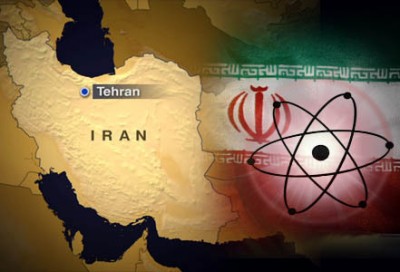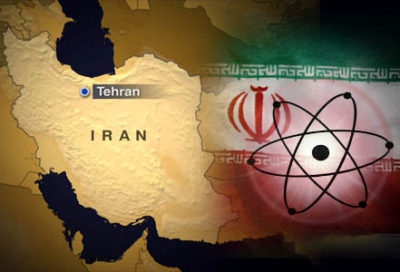 Western powers told Iran on Thursday it must step up cooperation with a U.N. watchdog’s investigation into suspected atomic bomb research by the country if it wants to get a broader nuclear deal that would ease sanctions.
Western powers told Iran on Thursday it must step up cooperation with a U.N. watchdog’s investigation into suspected atomic bomb research by the country if it wants to get a broader nuclear deal that would ease sanctions.
The warning was issued at a board meeting of the U.N.’s International Atomic Energy Agency (IAEA) in Vienna, as chief negotiators from Iran and six world powers prepared to resume talks in New York after a two-month hiatus.
Iran’s envoy, Reza Najafi, dismissed accusations about his country’s atomic activities as “mere allegations … without any substantiation” but also said a new meeting with the IAEA to discuss the matter was expected to be held soon.
A stalled IAEA inquiry could further complicate the powers’ parallel efforts to reach a settlement with Iran on curbing its nuclear program in exchange for a gradual phasing out of financial and other punitive measures hurting its economy.
The United States and the European Union said they were concerned about the slow headway so far in the IAEA’s long-running probe into suspicions that Iran has worked on designing a nuclear weapon. Iran denies the charge and says it is Israel’s assumed atomic arsenal that threatens Middle East peace.
An IAEA report in early September showed Iran had failed to answer questions about what the U.N. agency calls the possible military dimensions of the country’s nuclear program by an Aug. 25 deadline.
In a statement to the IAEA meeting, the EU said it was disappointed with the “very limited progress” in that inquiry.
“The EU underlines that resolving all outstanding issues (between Iran and the IAEA) will be essential to achieve a comprehensive, negotiated long-term settlement,” it said.
That was a reference to the push by the United States, Russia, China, Britain, France andGermany to negotiate a resolution to the wider, decade-old dispute with the Islamic Republic over its nuclear program.
Iran has been promising to cooperate with the IAEA since Hassan Rouhani, seen as a pragmatist, was elected president last year on a platform of ending Tehran’s international isolation. It says its nuclear work is for non-military purposes only.
NUCLEAR DEADLINES
But Iran did not address two key issues by late August as agreed with the IAEA: alleged experiments on explosives that could be used for an atomic device, and studies related to calculating nuclear explosive yields.
They were part of a landmark report published by the IAEA in 2011 with intelligence indicating Iran had a nuclear weapons research program but halted it in 2003 when it came under increased international pressure. The intelligence suggested some activities may have resumed later. The report identified about 12 specific areas that it said needed clarification.
Iran says the allegations are baseless, while pledging to address the concerns.
Najafi said the two issues had not yet been completed because of “their complexity and the invalidity” of the IAEA’s information. “The so-called ‘missing the deadline’ is totally inaccurate,” Najafi told reporters.
U.S. envoy Laura Kennedy urged Iran to “intensify its engagement” with the IAEA. “Concerns about the possible military dimensions of Iran’s nuclear program must be addressed as part of any comprehensive solution,” she said.
Rouhani’s election raised hopes of a solution to the stand-off with the West after years of tension and fears of a new Middle East war. An interim accord was reached between Iran and the six powers in Geneva last November.
But they did not meet a self-imposed July target date for a long-term accord and now face a new deadline of Nov. 24.
While the powers seek to limit the size of Iran’s future nuclear program — and thereby extend the time it would need for any bid to amass fissile material for a weapon — the IAEA is investigating alleged research and experiments in the past that could be used to make the bomb itself.
Western officials say that although there is no chance of the IAEA inquiry being completed before the scheduled end of the six-power talks, some of the sanctions relief Iran is seeking would probably depend on its cooperation with the U.N. agency.
Reuters


Leave a Reply
You must be logged in to post a comment.